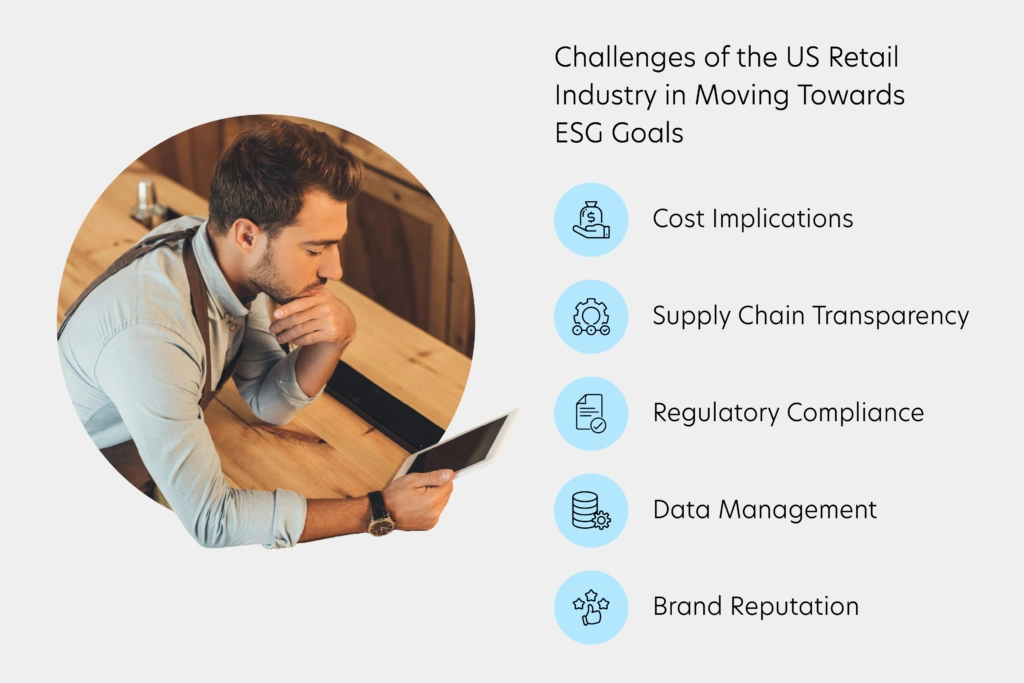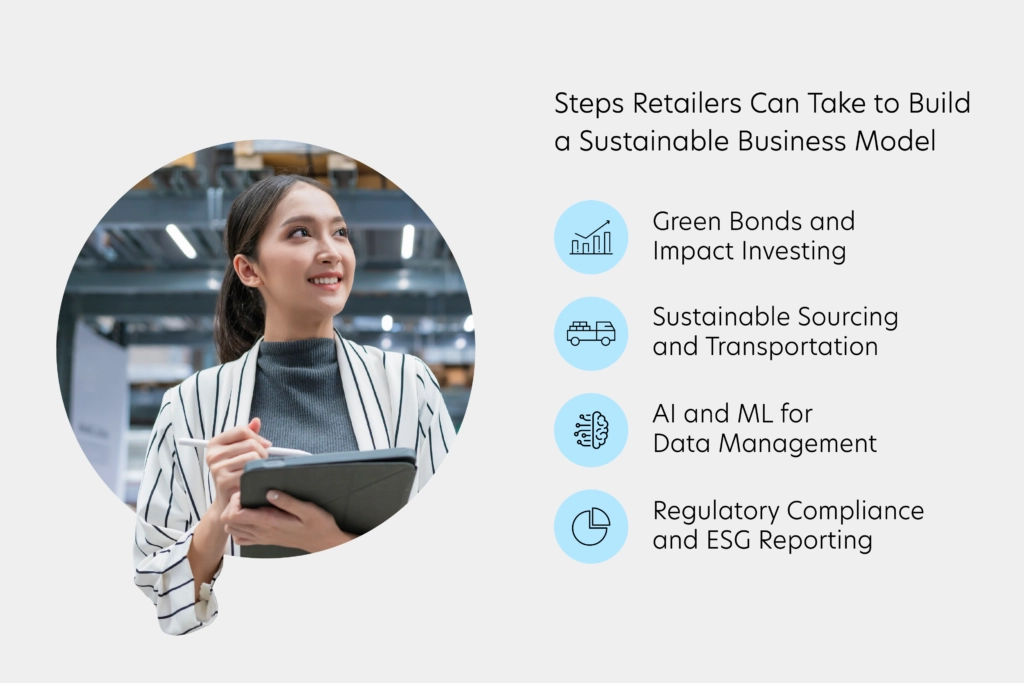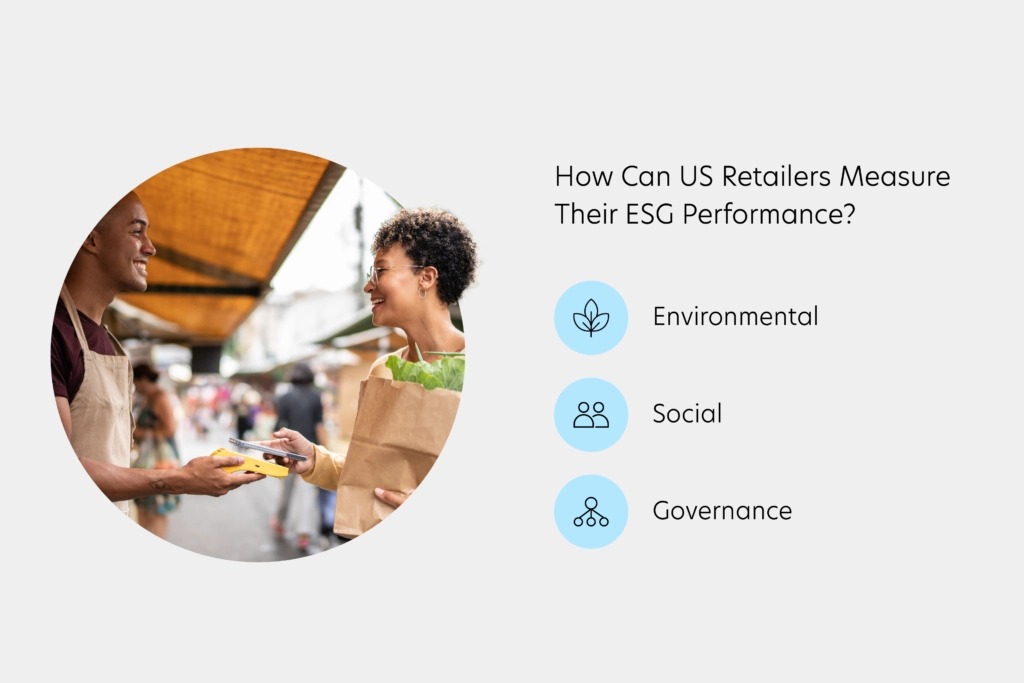Jaffar Razool – Senior Vice President
The retail industry has undergone significant transformation in the last decade, with the internet creating new sales channels and introducing new competitors. The COVID-19 pandemic accelerated the retail industry’s digital transformation. Simultaneously, it brought sustainability into focus for retailers with heightened scrutiny from different stakeholders.
- Environmental factors include reducing greenhouse gas emissions, waste management, energy efficiency, and other efforts to minimize climate change impact.
- Social factors include how companies manage their workforce and positively contribute to the society within which it operates.
- Governance includes companies’ internal systems and processes to meet stakeholders’ rights, responsibilities, and expectations.
Challenges of the US Retail Industry in Moving Towards ESG Goals

Cost Implications
Supply Chain Transparency
Regulatory Compliance
Even as ESG reporting is voluntary in many countries, increasing global regulations are being drafted for ESG data reporting. The United States is considering rules requiring companies to make detailed disclosure of climate-related risks and Greenhouse Gas (GHG) emissions. While the European Union has introduced the Sustainable Finance Disclosure Regulation (SFDR) to improve transparency around corporate sustainability claims.
Retailers must comply with regulations that vary by country and region, which can be challenging for multi-location retailers.
Data Management
Brand reputation
Steps Retailers Can Take to Build a Sustainable Business Model

Green Bonds and Impact Investing
Retailers are exploring various financing options (such as green bonds, sustainability-linked loans, and impact investing) to address the cost implications of implementing ESG goals.
They also realize financial gains by reducing costs through energy efficiency measures, waste reduction, and sustainable sourcing practices. They are adopting LED lighting, using renewable energy, and implementing energy management systems to monitor and optimize their energy usage.
Sustainable Sourcing and Transportation
Moreover, retailers are also exploring sustainable transportation options such as electric vehicles, bike deliveries, and alternative fuels to reduce their carbon footprint.
Retailers are collaborating with suppliers to increase supply chain transparency through proper disclosure.
AI and ML for Data Management
Regulatory Compliance and ESG Reporting
How Can US Retailers Measure Their ESG Performance?

Environmental
Social
Retailers can measure their social impact by tracking employee diversity and inclusion metrics, labor practices, supply chain transparency, and community engagement.
Many prominent retailers like Macy, Sephora, and twenty-three other retailers have signed a 15% pledge to dedicate more shelf space to black-owned brands. They can also report on their efforts to promote social responsibility, such as supporting local communities or implementing fair trade practices.